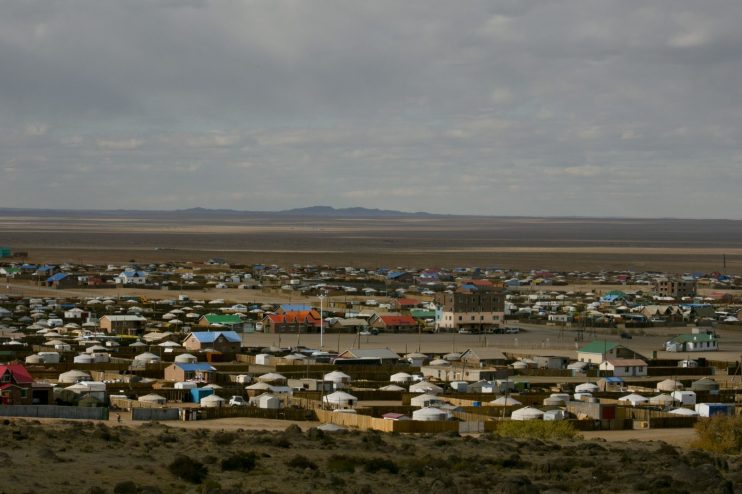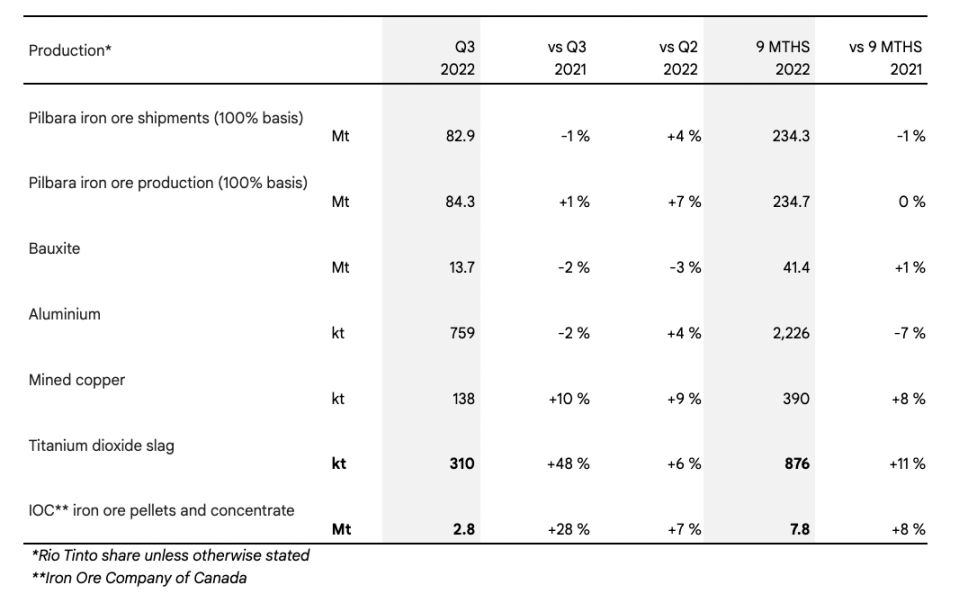Rio Tinto fears recession and Covid clampdowns will hit iron ore shipments

Iron ore demand will be weighed down by a global slowdown in commodity markets, driven by Covid-19 clampdowns in China and a looming recession across developed Western economies, warned Rio Tinto.
In a gloomy third-quarter trading update, the Anglo-Australian miner feared that the commodities boom was finally coming to an end this year, with prices expected to keep falling as “downside risks to demand” emerge.
The price of iron ore contracts in Singapore has fallen more than 46 per cent from its most recent peak in March.
Prices slid as much as 1.4 per cent on Tuesday morning in Singapore to $90.30 a tonne before recovering to $91.40 by midday.
Meanwhile, China’s recovery from the pandemic remains uneven amid President Xi Jinping’s aggressive Zero-Covid clampdowns on major cities over two years after the virus spread across the world.
Despite government stimulus, Rio Tinto noted that the recovery of the Chinese construction sector is still in its early stages.
This is a big setback for the miner, with China being biggest market for Australian iron ore producers.
It said: “Slowing global demand poses downside risks to China’s strong exports, while consumers remain cautious of the property market.”

Miner continues buying spree
Rio Tinto now expects full year shipments to be “at the low end” of its original 320-335m tonne prediction.
The iron ore is extracted from its mines in the Pilbara region of Western Australia, where it has also reported operational issues such as technical problems at some of its mines and train derailments.
Some of the group’s resources were produced in higher numbers than this time last year, such as mined copper and titanium dioxide slag, however its staple goods such as iron ore, bauxite and aluminium were all down.
Despite the headwinds, Rio Tinto has pushed forward with plans to expand its operations.
Alongside its trading update, the miner announced it had entered a deal with Australian rival Wright Prospecting to extract resources from “one of the biggest and best undeveloped iron ore deposits on the planet” at Rhodes Ridge in the Pilbara.
This is the latest move in a flurry of acquisition activity for the miner.
Last month, it made a breakthrough in plans to take control of a key copper mine in Mongolia at a cost of nearly A$5bn ($3.2bn).
It has also entered a joint venture with China’s Winning Consortium Simandou to begin mining iron ore in Guinea, and has signed a $2bn deal with the largest Chinese state-owned steelmaker China Baowu Steel Group — its largest customer — to develop iron ore mines in the Pilbara.
Earlier this year, Rio Tinto unveiled a £12.4bn dividend for its shareholders, the second largest in the history of the London Stock Exchange.
Rio Tinto hopes to regain trust
Rio Tinto’s chief executive Jakob Stausholm confirmed the group remains committed to its environmental goals – which includes reaching net zero carbon emissions by 2050 alongside shorter-term targets such as cutting emissions by 15 and 50 per cent by 2025 and 2030 respectively.
He said: “We continue to deliver our strategy with decarbonisation at its centre.”
Last week Rio Tinto announced a partnership with the Government of Canada to invest up to CAN $737m over eight years to decarbonise its operations in Québec.
The miner is also looking to continue plans to “transform” its culture and “rebuild trust.”
The company has been plagued with scandal following its destruction of a sacred Aboriginal cave system last year, which sat on top of around £75m worth of high-grade iron ore.
The cave system, in the Juukan Gorge near Pilbara, had shown signs of continued human occupation for more than 46,000 years – before it was blown up.
A new leadership team was brought in after a severe backlash from shareholders, consumers and politicians, and the company commissioned an internal workplace review into its business culture.
This revealed 21 reports of actual or attempted rape in the past five years alongside widespread bullying and discrimination.
It will now publish a new report establishing whether it has implemented recommendations from the review to change its culture.
Stausholm said: “We are taking action to transform our culture and rebuild trust, implementing the recommendations of the Everyday Respect report and publishing our second progress report on our Communities and Social Performance practices, which includes increased feedback from traditional owner groups, with responses from seven groups compared to four in 2021.”